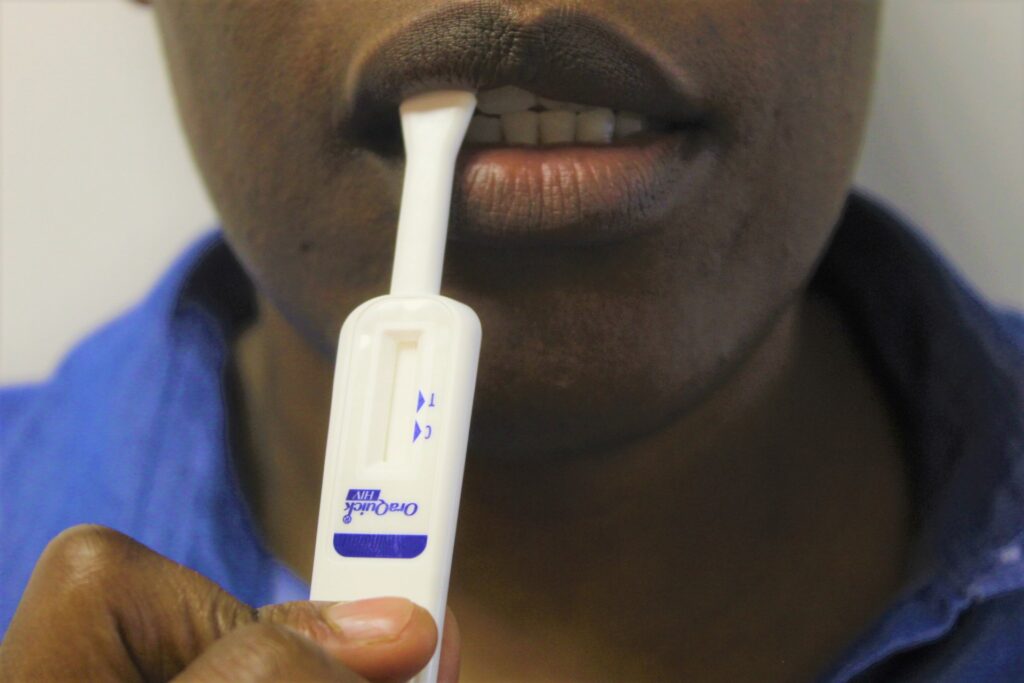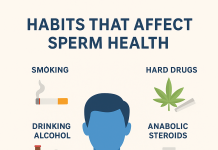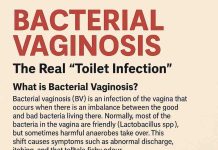There is no cure for HIV yet, but newer approaches to prevention and diagnosis, such as self-test, make it possible to keep the disease under control.
What you should know about HIV
HIV stands for Human Immunodeficiency Virus, a deadly virus that attacks the immune system. It is transmitted commonly through sex and the sharing of sharp objects. There is also transmission from mother to child, which occurs during pregnancy and breastfeeding. If not well treated, HIV can lead to AIDS (Acquired Immunodeficiency Syndrome).
It has been decades since the first outbreak of HIV/AIDS. Yet, the disease remains a leading cause of sickness and death, especially in Africa, which is home to the largest population of People Living With HIV/AIDS (PLWHA) in the world. One reason the burden of HIV remains high is that many high-risk individuals and those already living with the virus are not aware of their viral status — usually because they hardly or never get tested. Understandably, it is not easy to test for HIV in hospitals in this part of the world, owing to the stress and stigmatisation that comes with the process. However, the Health Fact for today is that you do not need to stress; with HIV self-testing, you can know your status within 20 minutes and in the comfort of your room!

What is an HIV self-test?
HIV self test is also known as HIV rapid test. It involves testing your oral fluid (saliva) for the presence of HIV antibodies. Think of these antibodies as special soldiers that your body deploys to attempt to fight the virus when it gains entry into your body. Self-test typically provides your result in 20 minutes.
How can you get an HIV self-test kit?
The most common HIV self-test kit in Nigeria is OraQuick. It is available in many pharmacy stores. You can also order it online.
How to carry out an HIV self-test
Performing an HIV Self-test is easy and convenient.
- Ensure to read and follow the manufacturer’s instructions on the test kit.
- You would need to swab your gums to take a saliva sample and then test the sample.
- Wait for about 20 minutes to get your results.

What next if you test positive?
HIV can be a challenging condition. But with early diagnosis and adequate treatment, people living with HIV can lead healthy and quality lives.
If your self-test comes out positive, you should immediately see your doctor, who would request further tests to establish your diagnosis, counsel and place you on medications to suppress the activity of the virus.
When is HIV Self-Test not reliable?
Self-testing may not be helpful when trying to know your status after a very recent exposure to the virus. This is because your body may not have developed the antibodies to the virus, which are usually detectable in self-test. In situations of recent exposure to the virus, kindly see your doctor immediately.
Learn more about the reliability of HIV rapid tests here.
A Word from Healthfacts to you
Get tested; know your HIV status today.
See you next time.










Bạn có thể chia sẻ thêm tài liệu được không?
**backbiome**
backbiome is a naturally crafted, research-backed daily supplement formulated to gently relieve back tension and soothe sciatic discomfort.
**boostaro**
boostaro is a specially crafted dietary supplement for men who want to elevate their overall health and vitality.
**aquasculpt**
aquasculpt is a revolutionary supplement crafted to aid weight management by naturally accelerating metabolism
**hepato burn**
hepatoburn is a high-quality, plant-forward dietary blend created to nourish liver function, encourage a healthy metabolic rhythm, and support the bodys natural fat-processing pathways.
**vivalis**
vivalis is a premium natural formula created to help men feel stronger, more energetic, and more confident every day.
**alpha boost**
alpha boost for men, feeling strong, energized, and confident is closely tied to overall quality of life. However, with age, stress, and daily demands
**nitric boost**
nitric boost is a daily wellness blend formulated to elevate vitality and support overall performance.
**synadentix**
synadentix is a dental health supplement created to nourish and protect your teeth and gums with a targeted combination of natural ingredients
**glycomute**
glycomute is a natural nutritional formula carefully created to nurture healthy blood sugar levels and support overall metabolic performance.
**nervecalm**
nervecalm is a high-quality nutritional supplement crafted to promote nerve wellness, ease chronic discomfort, and boost everyday vitality.
**yu sleep**
yusleep is a gentle, nano-enhanced nightly blend designed to help you drift off quickly, stay asleep longer, and wake feeling clear
**gl pro**
glpro is a natural dietary supplement designed to promote balanced blood sugar levels and curb sugar cravings.
**prodentim**
prodentim is a distinctive oral-care formula that pairs targeted probiotics with plant-based ingredients to encourage strong teeth
**balmorex pro**
balmorex is an exceptional solution for individuals who suffer from chronic joint pain and muscle aches.
**mind vault**
mindvault is a premium cognitive support formula created for adults 45+.
**vitrafoxin**
vitrafoxin is a premium brain enhancement formula crafted with natural ingredients to promote clear thinking, memory retention, and long-lasting mental energy.
**provadent**
provadent is a newly launched oral health supplement that has garnered favorable feedback from both consumers and dental professionals.
**femipro**
femipro is a dietary supplement developed as a natural remedy for women facing bladder control issues and seeking to improve their urinary health.
**glucore**
glucore is a nutritional supplement that is given to patients daily to assist in maintaining healthy blood sugar and metabolic rates.
**sleeplean**
is a US-trusted, naturally focused nighttime support formula that helps your body burn fat while you rest.
**prostavive**
prostavive Maintaining prostate health is crucial for mens overall wellness, especially as they grow older.
**tonic greens**
tonic greens is a cutting-edge health blend made with a rich fusion of natural botanicals and superfoods, formulated to boost immune resilience and promote daily vitality.
**vertiaid**
vertiaid is a high-quality, natural formula created to support stable balance, enhance mental sharpness, and alleviate feelings of dizziness
**sugarmute**
sugarmute is a science-guided nutritional supplement created to help maintain balanced blood sugar while supporting steady energy and mental clarity
**gluco6**
gluco6 is a natural, plant-based supplement designed to help maintain healthy blood sugar levels.
**oradentum**
oradentum is a comprehensive 21-in-1 oral care formula designed to reinforce enamel, support gum vitality, and neutralize bad breath using a fusion of nature-derived, scientifically validated compounds.
**biodentex**
biodentex is a dentist-endorsed oral wellness blend crafted to help fortify gums, defend enamel, and keep your breath consistently fresh.